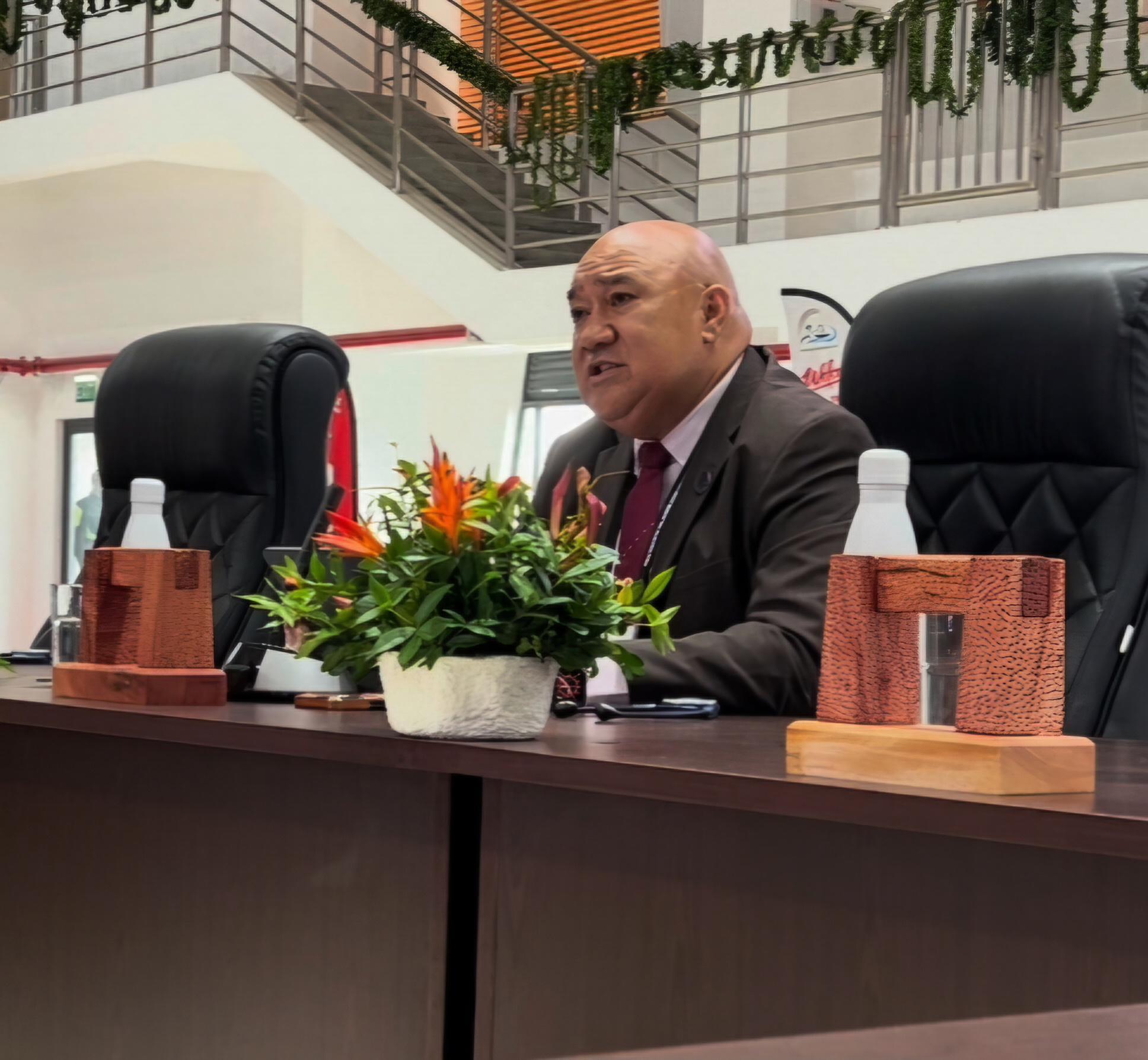The newly appointed World Health Organisation (WHO) Regional director for the Western Pacific, Dr Saia Ma’u Piukala, has called on Forum Leaders to confront the region’s most critical health challenges with urgency and commitment.
Speaking at the 53rd Pacific Islands Forum Leaders Meeting, Dr Piukala outlined a stark reality facing the region: the escalating impacts of climate change on health infrastructure, a severe shortage of health workers, and the skyrocketing rates of noncommunicable diseases (NCDs).
“Without your support, this Pacific dream would not have been possible,” Dr Piukala said.
He expressed his gratitude to the Forum Leaders for backing his election.
“I commit to doing my best to serve our region and make our Pacific family proud.” However, he stressed the need for a cohesive and determined response to the health threats facing the Pacific.
Dr Piukala highlighted the urgent need to prioritise climate-resilient infrastructure, revealing that 62 percent of hospitals in 14 Pacific island nations are within 500 meters of the sea or a river, making them highly vulnerable to flooding and storm surges.
“This is a risk area for us in the Pacific region,” he warned, pointing to recent relocations of health facilities in Tonga, Niue, Nauru, and Fiji due to rising climate risks.
“In Tonga, with the support of the Asian Development Bank, we moved our hospital in Ha’apai from the seaside to the highest point of the island,” he said.
“Similarly, Niue moved its hospital inland after Cyclone Heta, and in Nauru and Fiji, hospitals were relocated due to the threat of flooding. These examples show the scale of the problem—and the scale of what we must do.”
He called on Pacific leaders to invest in climate-resilient and environmentally sustainable healthcare facilities and advocate for increased international climate finance to support these transitions.
“Our infrastructure must not only survive the impacts of climate change but thrive in the face of it,” he stressed.
Dr Piukala identified human resources as another critical challenge, with many Pacific nations facing severe shortages of healthcare workers.
“Without adequate human resources, it is difficult to provide the health services our people need,” he said
He explained that many countries are struggling to meet even the minimum recommended staffing levels.
“Over the past year, more than 1,000 nurses have left from just five countries: Fiji, Kiribati, Nauru, Tonga, and Tuvalu,” he noted.
He explained that the ongoing exodus, or “brain drain,” of skilled health professionals is driven by a lack of opportunities and better prospects abroad.
“The reality of ‘brain sharing’ or ‘brain drain’ is hitting us hard,” he warned. “We must focus on retention measures and quality training to keep our health workers here. Train your health workers so they don’t leave. Treat them well so they don’t want to.”
Dr Piukala called on leaders to develop a comprehensive region-wide health workforce strategy that prioritises the training and retention of healthcare professionals. “Our people are our greatest resource, and we must invest in them,” he added.
Addressing the prevalence of noncommunicable diseases, Dr Piukala was equally honest, stating that NCDs remain the biggest health challenge in the Pacific.
“The fact that NCDs are the biggest health challenge should come as no surprise to many of us. After all, our region is often called the ‘NCD capital of the world’ given that we top the lists for highest prevalence of obesity, diabetes and other NCDs.
“Around 7 out of 10 deaths in our Region are due to NCDs, so the burden is real. Without significant acceleration of efforts to address NCDs, we will continue to lose many of our people prematurely,” he said.
He urged the Pacific leaders to reaffirm their commitment to tackling the NCD crisis through scaling up actions under the Pacific NCD Roadmap, the Pacific Ending Childhood Obesity priorities, and the Bridgetown Declaration on NCDs and Mental Health. “If we do not accelerate our efforts, we will continue to lose many of our people prematurely,” he warned.
Dr Piukala stressed the importance of a whole-of-society approach to health, calling for stronger partnerships between governments, communities, and other relevant sectors to address the root causes of NCDs.
“We need a holistic, whole-of-government, whole-of-society, and health-in-all-policies approach to tackle these issues effectively,” he stated.
He also emphasised that health must become a permanent fixture on the agenda of Pacific leaders.
“We don’t often get the opportunity to present health issues and key priorities to Leaders, so this is a great milestone,” he said. “I hope it will indeed become a standing agenda item.”
Dr Piukala challenge Forum Leaders to move beyond acknowledgement to action.
“Knowing is not enough; we must apply. Willing is not enough; we must do,” he declared.
Dr Piukala’s appeal is a rallying cry for the Pacific, urging its leaders to seize this critical moment to secure a healthier, more resilient future for the region.














